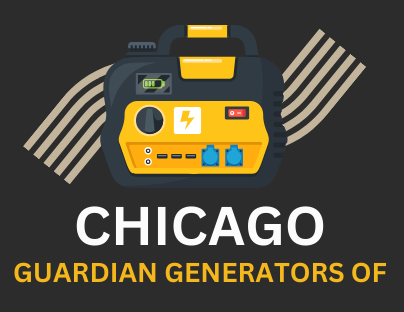Whole House Generators in Elsdon IL
A whole house generator is a backup power system designed to provide electricity to an entire home during a power outage. Unlike portable generators that only power a few appliances, whole house generators are connected directly to your home's electrical system. They automatically start up when there is a power loss and supply power to essential circuits, ensuring that all the electrical systems in your home continue to run smoothly.
Importance of Having a Whole House Generator
Having a whole house generator is crucial for maintaining comfort and safety during power outages. Power interruptions can occur due to various reasons such as severe weather, equipment failures, or accidents. Without backup power, you might experience inconveniences like spoiled food, disrupted heating or cooling, and lack of light. A whole house generator ensures that your home remains functional and comfortable, protecting your household from the consequences of unexpected blackouts.
Types of Whole House Generators
Whole house generators come in several types, each suited to different needs and preferences:
- Standby Generators: These are permanently installed and automatically activate during an outage. They run on natural gas, propane, or diesel and are capable of powering your entire home.
- Portable Generators: While typically less powerful than standby generators, portable generators can still supply enough power for essential appliances and systems. They need to be manually connected and fueled.
- Inverter Generators: These are known for their quiet operation and fuel efficiency. They are ideal for situations where you need a reliable power source without disturbing noise levels.

Key Considerations When Choosing a Whole House Generator
When selecting a whole house generator, consider the following factors:
- Power Requirements: Calculate the total wattage needed to power all essential appliances and systems in your home.
- Fuel Type: Choose between natural gas, propane, or diesel based on availability, cost, and convenience.
- Size and Capacity: Ensure the generator can handle the load required for your home. Larger homes may need more powerful generators.
- Installation Space: Consider where the generator will be installed, ensuring there is enough space and proper ventilation.
- Noise Levels: Opt for a generator that operates quietly to avoid disturbances.
Installation Process
Installing a whole house generator involves several steps:
- Site Assessment: A professional will evaluate your home to determine the best location for the generator and ensure it meets local codes.
- Generator Selection: Based on your needs and the site assessment, choose the appropriate generator model.
- Electrical Hookup: The generator is connected to your home's electrical system via a transfer switch, which safely manages power flow during an outage.
- Testing: After installation, the system is tested to ensure it operates correctly and efficiently.
- Final Adjustments: Any necessary adjustments are made to optimize performance and ensure safety.
Maintenance Tips for Longevity
To keep your whole house generator running smoothly, follow these maintenance tips:
- Regular Inspections: Schedule periodic professional inspections to check for any issues or wear and tear.
- Oil Changes: Change the oil and oil filter according to the manufacturer's recommendations.
- Battery Care: Check and maintain the generator’s battery to ensure reliable starting.
- Clean the System: Keep the generator and its components clean from dust and debris.
- Test Run: Regularly run the generator to ensure it starts and operates properly.
Cost Considerations
The cost of a whole house generator varies based on several factors:
- Generator Size: Larger generators with higher power capacities are more expensive.
- Fuel Type: Natural gas generators are generally more cost-effective than propane or diesel.
- Installation: Professional installation costs can vary depending on the complexity of the setup and any additional modifications needed.
- Maintenance: Factor in ongoing maintenance costs to ensure the generator remains in good working condition.
Safety Precautions
To ensure safe operation of your whole house generator:
- Proper Installation: Have the generator installed by a qualified professional to comply with safety standards.
- Ventilation: Ensure the generator is installed in a well-ventilated area to prevent carbon monoxide buildup.
- Fuel Storage: Store fuel in accordance with safety guidelines and regulations.
- Regular Checks: Monitor the generator’s performance and address any issues promptly to avoid safety hazards.
What We Offer
We provide comprehensive
whole house generator services in Elsdon, IL. Our offerings include:
- Residential Generators
- Commercial Generators
- Portable Generators
- Electric Generators
- Propane Generators
- Solar Generators
- Generator Repairs
- Generator Maintenance
- Generator Parts
Don’t wait for the next power outage to find out if your home is prepared. Contact us today to discuss your whole house generator needs and schedule a consultation. Our team is ready to help you ensure your home remains powered and protected.
